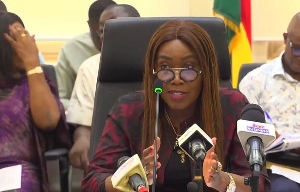Business News of Friday, 7 February 2020
Source: www.ghanaweb.com
Ghana failed to mobilize expected non-tax revenue due to poor fiscal discipline – UN Report
The United Nations Economic Commission for Africa(ECA) has blamed Ghana’s failure to realize its expected non-tax revenue on poor fiscal discipline.
The report dubbed the “Fiscal Policy for Financing Sustainable Development in Africa” reflected on the development trajectory and policies adopted to determine how quick countries will accelerates growth and creates prosperity for all.
According to ECA, Ghana has implemented a series of presumptive taxes in an effort to tax the informal economy and that experience reveals the need for an integrated approach that not only creates a simple tax system for hard-to-tax sectors.
Taxation reforms and improvement in non-tax revenue will extricate Ghana from the debt trap, the report stated.
“Also uses existing social structures, such as business associations, and focuses on increasing capacity in tax administration and tackling corruption at all levels,” the economic body added.
The Economic Report on Africa 2019 said the common denominator facing the African countries in debt distress has been low government revenue.
In the release, Ghana’s revenue to GDP was below 20 percent same as Sudan, Chad, Zimbabwe, Ghana, and Ethiopia.
“Those countries will remain in the debt trap unless something is done to raise revenue through tax reforms, non-tax revenue, enhanced tax administration and reduced tax evasion and avoidance particularly in the natural resources sector,” it stated.
The report further stated that addressing these challenges could mobilize additional revenue to finance sustainable development and Agenda 2063 aspirations.
“Though registrations increased, many complained that the tax was too high and administratively burdensome. The tax also faced challenges of corruption, rampant evasion and limited administrative capacity on the part of the revenue authority.”











